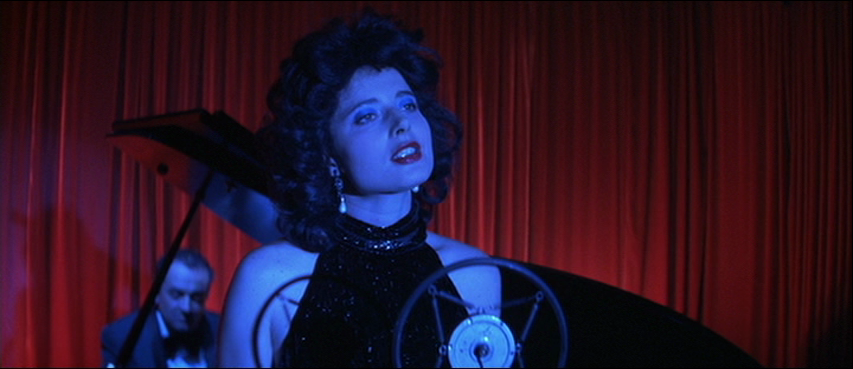With the passing of David Lynch, maybe you’re interested in understanding why so many regard him as an influential filmmaker? Twin Peaks might be the most popular thing he’s ever created, but it’s a very slow burn. By slow, I mean the slowest thing I’ve ever watched. Personally, I think his 1986 thriller Blue Velvet is the best entry point to Lynch’s filmography.
Combining elements of mystery, noir, and surrealism, the film explores the duality of human nature, and the darkness found in the adult world. Blue Velvet is an invitation to venture into the depths of Lynch’s artistic vision and contemplate themes that resonate far beyond the screen. It still feels grounded and traditional, far more than some of his other work. So here are several reasons why you should watch Blue Velvet.

Subverting Suburbia
Blue Velvet is a meditation on the sinister undercurrents that lie beneath the polished exterior of suburban America. The story begins with Jeffrey Beaumont (played by Kyle MacLachlan) returning to his hometown after his father suffers a stroke. The idea of returning home from college has been put to film before. This is something much darker. Jeffrey discovers a severed human ear in a field – a discovery that propels him into a world of crime, sadism, and moral ambiguity. It reveals the stark contrast between the town’s serene façade and its hidden depravity. More importantly, it shows how adolescence is easily shattered. Jeffrey has to confront the dark, real world in order to make peace with his return home. It makes for a fresh story.
It’s also a subversion of the noir detective mystery. It’s typical for a film like this to center itself around a gritty older man. Lynch, instead, pits a young, hopeful college graduate at the helm.
Unforgettable Performances
The performances in Blue Velvet are nothing short of extraordinary. Kyle MacLachlan’s Jeffrey embodies the audience’s journey through the film’s strange and unsettling world. Laura Dern, as Sandy Williams, offers a counterbalance to the film’s darkness. Like Jeffrey, she has a youthful innocence. It’s one that drives the film. Isabella Rossellini, as Dorothy Vallens, delivers a haunting and vulnerable performance as the femme fatale. She’s a nightclub singer who mixes sensuality and darkness with ease.
However, the standout performance in Blue Velvet is from Dennis Hopper. His take of Frank Booth steals the show. Frank might be one of the most terrifying villains in cinematic history. He is unpredictable and volatile which makes for an exciting viewing. It’s simultaneously repulsive and mesmerizing. A scene where he forces Dorothy to be intimate with him while he yells “Mommy!” and huffs on gas will haunt me forever. That is not the only scene he steals. Nearly every moment he’s on screen, Hopper is unforgettable.

Lynchian Surrealism
Assuming you’ve heard of David Lynch, you may have heard his name attached to surrealism. What does that mean? While filmmakers like Tim Burton or Wes Anderson take viewers into a stylistic version of reality, Lynch doesn’t overhaul the real world. He instead adds elements that are off-putting. Lynch uses camera techniques that force strange perspectives. Lights shine onto people in unrealistic ways. He uses music you’d describe as “dream-like”.
Symbolism and recurring motifs are used to enrich the film’s narrative. A severed ear, for instance, serves as an entry into the film’s dark underworld. The vibrant colors and eerie sound design evoke a heightened sense of reality. Other pieces feel out of place to the point where you wonder why they are there. What’s up with the giant baby doll on the couch? How can the dead man in the yellow suit stay standing for so long? These elements invite viewers to engage with the film from our reality and from a place of fantasy. While many of his works play deeper into the fantasy, Blue Velvet’s grounded world makes for a simpler viewing. You still get the Lynchian surrealism, but it never feels like a snooty art house film.
An Examination of Morality and Innocence
If you want takeaways, Blue Velvet delves deeply into the complexities of morality and power dynamics. The film challenges viewers to grapple with uncomfortable questions. What drives people to commit acts of violence? Why would anyone be interested in degradation? Can a person still be innocent while also exploring corruption? Jeffrey’s arc serves as a metaphor for the struggle to reconcile these opposing forces within ourselves.
The film’s exploration of these themes is unflinching. It often pushes the boundaries of what is comfortable to watch. (It will upset the “no sex in movies” crowd.) Confronting uncomfortable truths is what makes Blue Velvet so compelling. It does not offer easy answers or tidy resolutions. David Lynch invites viewers to wrestle with the ambiguities of life and human nature. It challenges you to keep your innocence as you watch this world unfold.

Why You Should Watch Blue Velvet
The film’s bold storytelling, unforgettable imagery, and psychological depth have earned it a place among the greatest films ever made. In my opinion, one of Lynch’s best. It’s a way into his mind and the art he made in his lifetime. Blue Velvet provokes thought and stirs emotion. It is a work that defines what a David Lynch movie is. He was a curious filmmaker. He always wanted to explore what is and what could be. Going back through his work and quotes, it isn’t hard to see how he maintained his innocence. An innocence that was tried by dark times. Blue Velvet is his story. A weird, insane, wonderful story.





